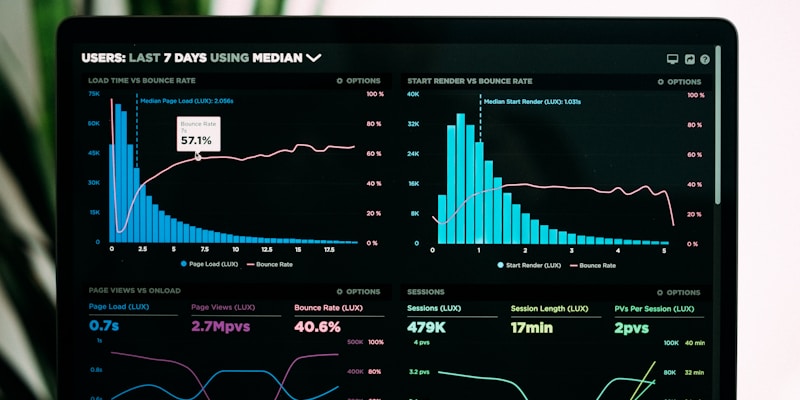The Testing Setup:
Real Work, Not Linked
In Demo Bullshit
Got 5 developers to suffer through different AI tools for most of 2024. Tried measuring everything but honestly, it's a mess
- too many variables, different projects, people having good days and shit days. Here's what we learned building actual software: React storefronts, Python microservices, Go APIs, legacy jQuery nightmares.
What we tracked (or tried to):
- How often you actually keep the suggestion
- vs immediately hitting backspace and cursing
- How long you wait for something useful
- staring at dots thinking "did it crash?"
- Does it understand your codebase
- or just pattern-match Stack Overflow examples
- Are you actually faster
- or just spending more time reviewing AI-generated garbage
- How long before it stops pissing you off
- the learning curve nobody talks about
GitHub Copilot:
The Boring Reliable Option
What I actually experienced:
- Keep maybe 6 out of 10 suggestions, varies wildly by project
- Feels sluggish as fuck, always that awkward pause
- Only sees your current file, so it's basically a fancy autocomplete
- Definitely faster on boilerplate, but nothing crazy
Copilot's like that coworker who's never brilliant but shows up every day and does the job.
GitHub claims 55% faster completion but their testing was on ideal conditions.
Real world? More like 20% faster on routine stuff.
Where it doesn't suck: Copilot's solid for the boring stuff. REST endpoints, basic React components, standard CRUD operations
- anything it's seen a million times before.
Suggestions aren't creative but they usually work. The VS Code extension integrates seamlessly and the documentation is comprehensive.
Where it shits the bed: Multi-file refactoring is where Copilot becomes useless.
It'll suggest changing one file without realizing it just broke 6 imports. The context window's too small to understand anything beyond your current function.
Good for: Teams who want consistent mediocrity.
Building standard web apps with boring patterns? Copilot's predictable results beat other tools' random brilliance.
Cursor: Fast As Hell When It's Not Crashing
What actually happened:
- Keep maybe 70-80% of suggestions when it's working, but this varies like crazy
- Response time is way snappier than Copilot's sluggish ass
- Actually gets your codebase architecture, which is fucking huge
- Cuts refactoring time in half when it doesn't crash mid-task
Cursor kills it when you need to touch multiple files.
That codebase indexing actually works
- it understands how your components connect instead of just guessing.
Why it's fast:
- Multi-line completions that aren't random garbage
- Refactoring suggestions that don't break everything else
- No waiting around like with other tools
- Agent mode can build entire features (when the stars align)
- Intelligent indexing that actually understands your project structure
- Codebase chat that references your actual code, not generic examples
The catch: Agent mode can fuck things up in sneaky ways.
One time it "refactored" our auth middleware and introduced a race condition that let unauthenticated requests through about 1% of the time. Took us 3 days to figure out why production was randomly failing auth checks. Cursor is powerful but you better review everything it touches with a fine-tooth comb.
RAM usage is brutal: Cursor eats 3-4GB easy, sometimes more.
If you're already running Docker, Slack, and 20 browser tabs, your machine's gonna cry.
Good for: Experienced devs who can spot AI bullshit before it breaks prod and have enough RAM to handle Cursor's appetite.
Claude Code:
Slow But Actually Smart
![]()
What I found:
- Accept maybe 80-90% of suggestions
- they're usually not garbage
- Response time is all over the map, 2 seconds to "fuck, did it die?"
- Actually understands what you're trying to build, not just pattern-matching
- Kills it on complex debugging but sucks for rapid iteration
Claude Code gives you quality over quantity.
Copilot throws 10 mediocre suggestions at you instantly. Claude Code thinks for 10 seconds then gives you 2 that actually work.
What makes it different:
- Won't suggest obviously broken shit like the others
- Actually gets business logic instead of just syntax
- Great for architectural decisions when you're stuck
- Terminal workflow that doesn't suck
- Multimodal understanding that can analyze screenshots and diagrams
- Reasoning capabilities that go beyond pattern matching
- Safety features that reduce harmful or biased code suggestions
Terminal workflow reality: Most serious coding benefits from terminal-based AI.
Makes you think instead of just accepting random completions.
The tradeoff: Claude Code's slow thinking means it's shit for rapid prototyping or flow state coding.
But when you need quality over speed, it's worth the wait.
Good for: Senior devs working on complex systems where broken code costs money.
Perfect for debugging weird shit and architectural decisions.
Windsurf: Great Ideas, Shit Execution
What happened:
- Keep maybe 65-75% of suggestions when it's not being weird
- Response time is decent, faster than Claude's thinking but slower than Cursor
- Context understanding is bipolar
- sometimes perfect, sometimes completely clueless
- Makes you faster when it doesn't randomly crash mid-session
Windsurf (formerly Codeium) has cool features like Cascade for multi-file work, but feels like beta software compared to the others.
Their docs are decent though.
The Codeium plugin legacy still works better than their new IDE in some cases.
The good parts:
- Decent balance of speed and understanding
- Free tier that's actually unlimited (for now)
- Not terrible on basic coding tasks
The shit parts:
- Crashes at the worst fucking times, always when you're deep in something
- Cascade mode over-engineers simple problems like it's trying to impress someone
- Still feels unfinished compared to mature tools
- RAM usage is unpredictable as hell
- sometimes fine, sometimes eats your entire system
Good for: Devs who want modern AI features without paying premium prices and don't mind debugging their IDE occasionally.
What Works Where:
Task-Based Reality Check
Each tool sucks at different things:
Cranking out boilerplate: 1.
Cursor
- blazing fast when not crashing
- Windsurf
- decent speed when it's stable
- Copilot
- reliable but slow as molasses
- Claude Code
- overthinks everything
Debugging complex shit: 1.
Claude Code
- actually figures out what's broken
- Cursor
- good context but sometimes makes things worse
- Copilot
- useless, can't see the forest for the trees
- Windsurf
- coin flip, usually fails
Big codebases: 1.
Claude Code
- understands the architecture
- Cursor
- indexes everything but murders your RAM
- Windsurf
- tries hard, crashes harder
- Copilot
- blind to anything outside your current file
Team environments: 1.
Copilot
- consistent mediocrity for everyone
- Claude Code
- amazing when people adapt the workflow
- Cursor
- loved by some, hated by others
- Windsurf
- too unstable for teams that need to ship
Context Switching: The Hidden Productivity Killer
There's some Harvard study that proves what we all knew
- constantly evaluating AI suggestions destroys your flow state and makes you slower overall.
The research on context switching shows similar productivity hits.
Flow state rankings:
- Cursor:
Fast suggestions keep you in the zone 2. Copilot: Predictable but interrupts with garbage suggestions 3. Windsurf:
Great when stable, crashes destroy everything 4. Claude Code: Different workflow entirely, more like pair programming
The fastest tool means shit if it constantly suggests code you have to delete and fix.
RAM and CPU:
How Hard These Tools Hit Your System
These tools eat resources like they're starving:
RAM usage (real numbers):
Maybe 800MB, not too bad
Nothing locally, runs on their servers
CPU load reality:
- Claude Code:
Your machine stays cool, their servers do the work
- Copilot: Noticeable but won't kill you
- Windsurf:
Fan starts working overtime
- Cursor: Laptop becomes a fucking space heater during indexing
If you're running Docker Desktop, Slack, Chrome with 50 tabs, and everything else normal developers have open, these differences matter.
Cursor once crashed my entire MacBook when it decided to re-index our monorepo while I was already maxed out.
Check the memory optimization guide if you're hitting similar issues.
What This Actually Means for Picking a Tool
There's no "best" AI coding tool.
It depends on your situation:
Pick Copilot if: You work on teams that need consistent results across different skill levels.
Building standard web apps with boring patterns. Want predictable performance without AI surprises breaking your day.
Pick Cursor if: You have a beast machine with 32GB+ RAM and don't mind your laptop becoming a space heater.
Work on huge codebases where context matters. Can spot subtle AI bugs before they break prod. Don't mind living on the bleeding edge.
Pick Claude Code if: You care about code quality over speed.
Work on complex systems where understanding beats autocomplete. Don't mind terminal workflows and waiting for thoughtful responses instead of instant garbage.
Pick Windsurf if: You want modern AI features without premium pricing and can handle your IDE occasionally shitting the bed.
Like experimenting with beta software. Budget's tight but you still want decent AI help.
After 8 months of testing: there's no universally "best" tool. Pick based on your coding style, hardware, and how much bullshit you can tolerate.
The biggest lesson? AI coding tools aren't about replacing your skills
- they're about amplifying what you're already good at while exposing every weakness in your development process. Choose accordingly.







